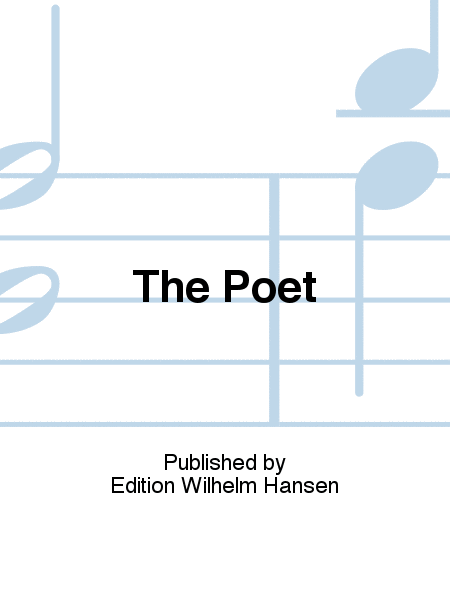The Poet
Details
Description
SKU: BT.WH30939
Classical. Vocal Score. Composed 2013. 18 pages. Edition Wilhelm Hansen #WH30939. Published by Edition Wilhelm Hansen (BT.WH30939).ISBN 9788759817773.
The Poet - A Gothic Tale for Saxophones and String Quartet (2007).
2008 Chamber version available: WH30938
Programme note
The Poet is the fourth of a series ofseven compositions named after Karen Blixen's collection of short stories Seven Gothic Tales.
My musical gothic tales are written for very different ensembles -
THE SUPPER AT ELSINORE is a saxophone quartet,THE OLD CHEVALIER is for bass trombone and piano, THE MONKEY is a chamber orchestra work - but they all share musical
material in a criss-cross of contextual references reminiscent of Blixen's narrativ ecomplexity: Themesandmotivs from one piece appear in others in new and surprising shapes and combinations.
Karen Blixen's The Poet is about a retired counsilor who always desired to be an artist - once he even met his ideal, Goethe -but knows that he is completely without talent.
Instead he patronizes a young gifted writer to the extent of shaping himself into a father figure his protege depends upon.
When a young italian widow arrives and thewriter predictably falls in love with her, and she with him, the councilor arranges a marriage between the widow and himself in order to break the young poet's heart - only in the best intention: to make him into a real poet.
But the writer decides to take his own life, and the widow crushes the councilor's head with a heavy stone crying, ”You poet!”
As he dies helpless to the will of destiny, the councilor realizes that fate haswrought a story greater than any he could have invented.
The Poet isn't 'about' anything. The music is inspired by the artistic content of Blixen's short story - it's emotionalism, dramatic construction,atmosphere, period and setting - but unfolds in time and musical space in ways that are completely independent of the story's narrative progression... except one might say that the violin kills off thepiano while the baritonesaxophone goes.

 Share
Share